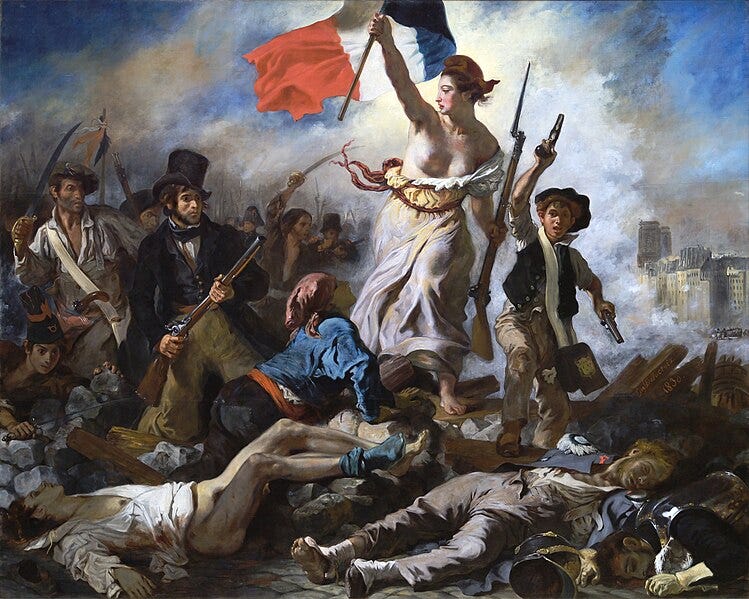Reading, Watching 07.14.24
July Revolutions
This is a regular feature for paid subscribers wherein I write a little bit about what I’ve been reading and/or watching. Hope you enjoy!
Today, of course, is Bastille Day, so I’d intended to focus today’s newsletter on France and the recent election, but history has intervened and I feel I should comment on the terrifying events of the 13th. I don’t think I can possibly be first to deliver this news to anybody in the world, but, just in case, there was an assassination attempt on former president Trump at a rally in Pennsylvania. The shooter and a bystander were killed. This is obviously a grave development. It takes no sentimental regard for Trump to feel relief that he was not more seriously injured or killed: the consequences for the country would have been dire. Now there is a great deal of speculation about what will happen next, some of it guided more by emotion than reason, some of it irresponsible, and some of it deliberately designed to mislead, inflame, and enrage. People have predicted everything from an a blowout Trump victory now to a national descent into violence. Both have degrees of plausibility, but I’m not certain of either. The same Trump who had the presence of mind to make this a propaganda coup can also fritter away his gains quickly. The fact is neither I nor anybody else know what will happen next. No matter what anybody tries to tell you about their hunches or premonitions, nobody knew that this would happen. That’s the nature of history: it’s highly contingent and unpredictable; events always outstrip our capacity to imagine or reason them out. In situations when dire predictions are being made, I think of this passage from Hannah Arendt’s 1954 essay Understanding and Politics:
Just as in our personal lives our worst fears and best hopes will never adequately prepare us for what actually happens-because the moment even a foreseen event takes place, everything changes, and we can never be prepared for the inexhaustible literalness of this "everything"-so each event in human history reveals an unexpected landscape of human deeds, sufferings, and new possibilities which together transcend the sum total of all willed intentions and the significance of all origins. It is the task of the historian to detect this unexpected new with all its implications in any given period and to bring out the full power of its significance. He must know that, though his story has a beginning and an end, it occurs within a larger frame, history itself. And history is a story which has many beginnings but no end. The end in any strict and final sense of the word could only be the disappearance of man from the earth. For whatever the historian calls an end, the end of a period or a tradition or a whole civilization, is a new beginning for those who are alive. The fallacy of all prophecies of doom lies in the disregard of this simple but fundamental fact.


